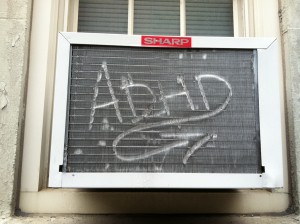“Make ADHD Disappear!”
“Ending ADHD in Five Easy Steps!”
If you’re the parent of a child with Attention Deficit Hyperactivity Disorder (ADHD), you’ve probably come across a number of so-called cures. Many people claim to be an authority on ADHD or insist they want to help your child overcome his or her condition.
What they’re usually more interested in is preying upon your concern for your child to make a profit. For many people, ADHD is a chronic illness that will last their entire life. It cannot simply be fixed with some “miracle cure.”
In an article by Alan D. Bowd, a former professor at Lakehead University, some common myths and false claims related to ADHD treatment are addressed.
Don’t Believe the Hype
Bowd begins by explaining what has been thus established about ADHD. He immediately dispels the notion that a valid “cure” already exists by pointing out that ADHD is “a lifelong, neurologically based condition.” He also questions sources who claim ADHD can be cured with a special diet, as there is no scientific evidence behind the theory.
Bowd warns parents to beware of people who advocate their own methods while categorically dismissing or reviling medications and standard treatments for ADHD. A very telling sign that something may be amiss is when self-proclaimed “experts” urge parents to stop current treatment. Discontinuing treatment for any illness without first consulting with a licensed professional can be harmful. Anyone who claims otherwise is probably not looking out for your best interests.
Things to Remember When Seeking Help
Parenting a child with ADHD is not easy, and anyone who promises their product will make it easy is probably lying to you. As a parent, you must be wary of potential swindlers who would take advantage of your vulnerability.
The best way to deal with your child’s ADHD is to seek help from legitimate, credible sources. This means thoroughly researching any products or services you find. You should always check credentials to make sure the treatment methods were developed by licensed mental health professionals and/or medical specialists. Keep in mind that endorsements from these individuals are not the same thing and shouldn’t be seen as a guarantee of efficacy.
Looking for professional advice in your own area is a good idea, though not all therapists and healthcare workers will be able to help you. It can take time and a lot of patience to find the right person to treat your child.
There’s plenty of bogus advice out there, but don’t give up hope. Though we don’t yet have a cure for ADHD, we continue to make progress. In the meantime, remain positive and show your child love, patience, and understanding as you fight the condition together.






